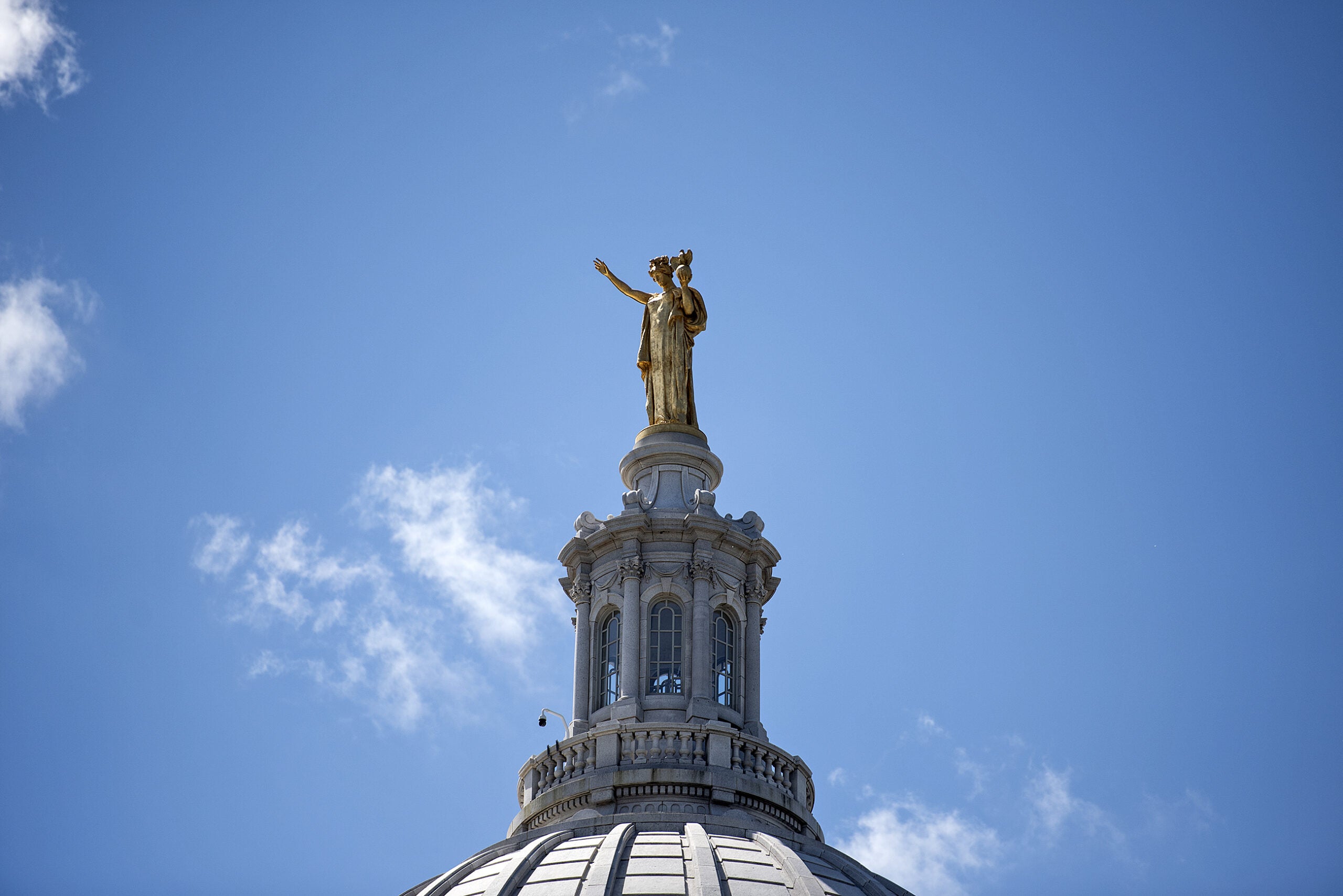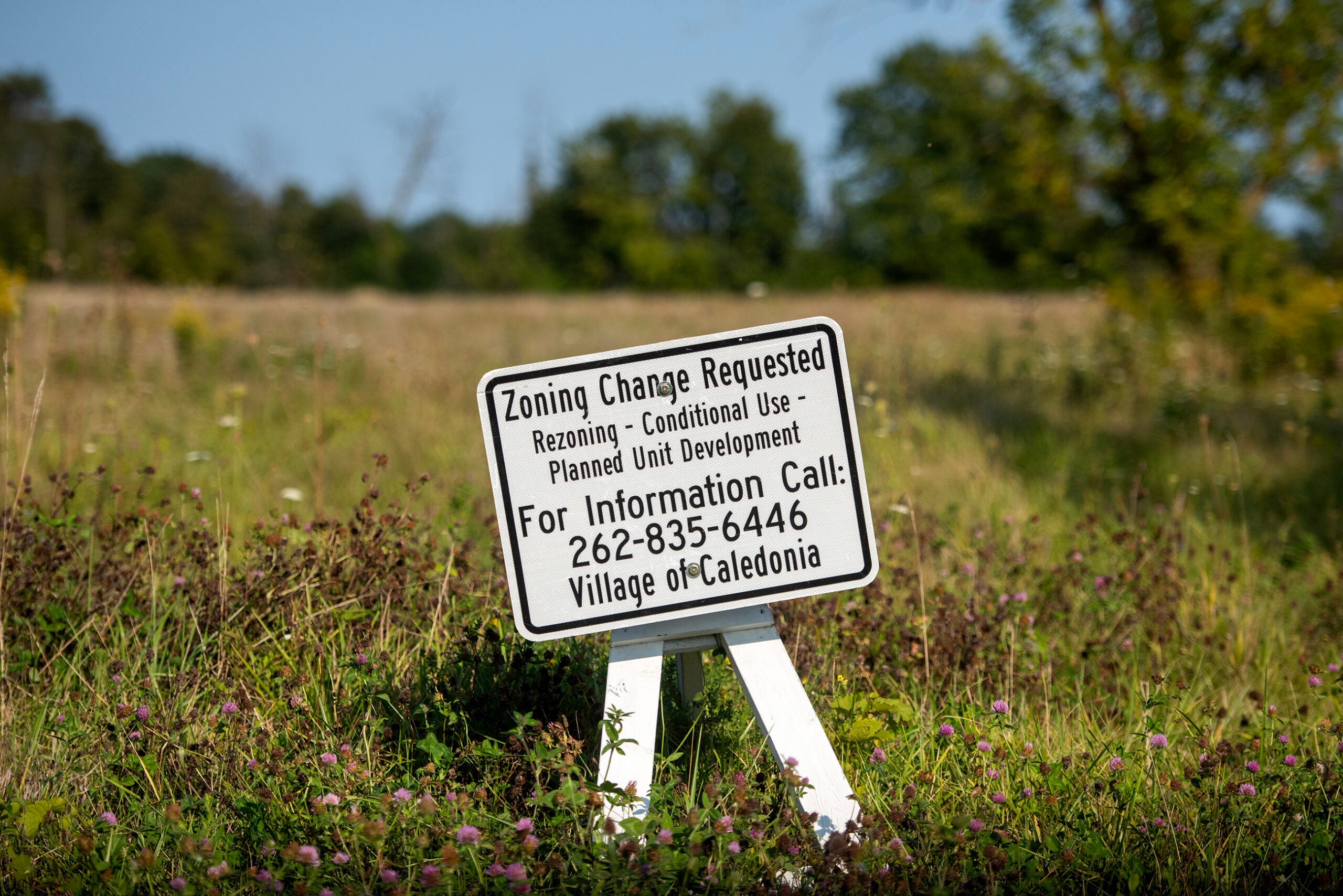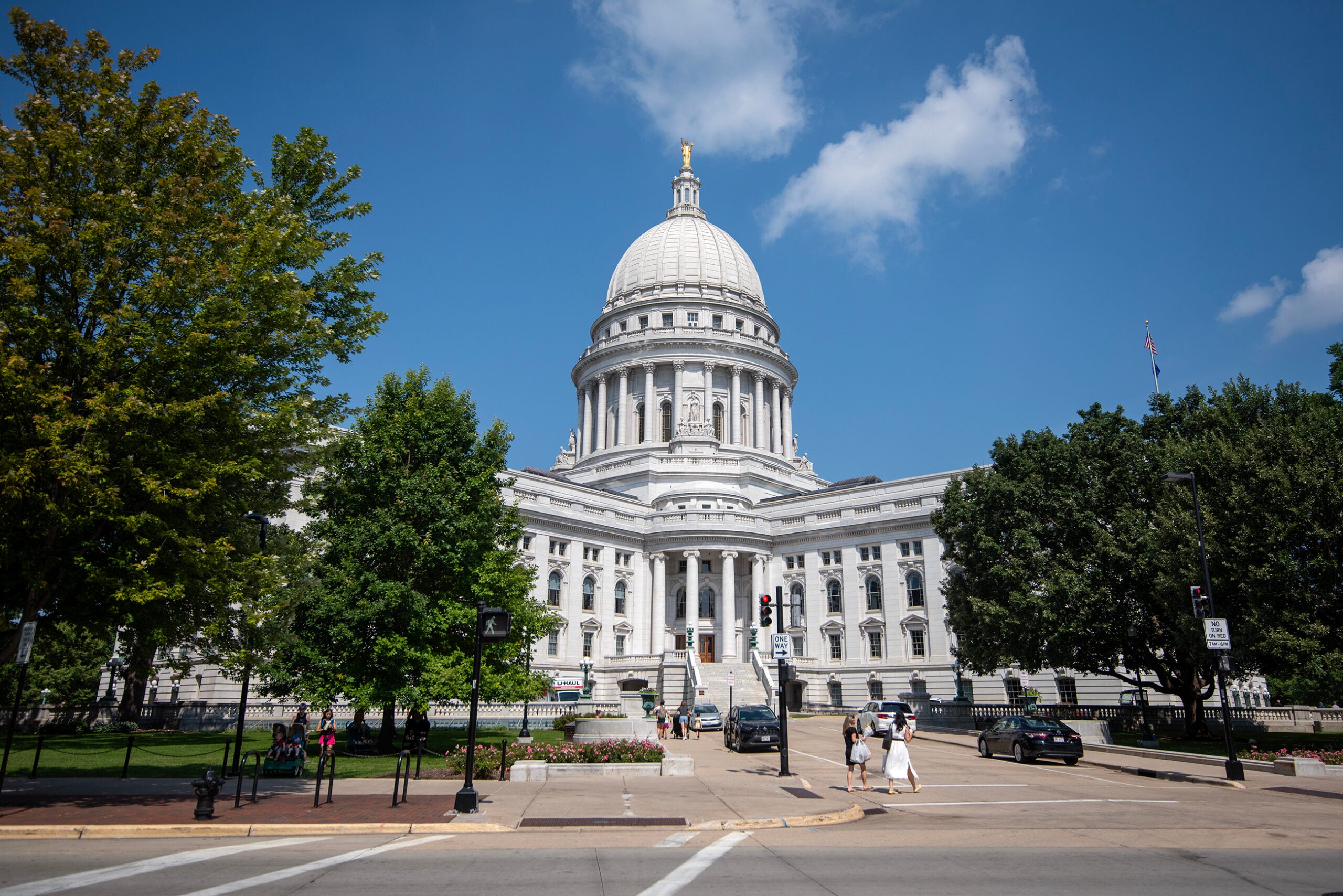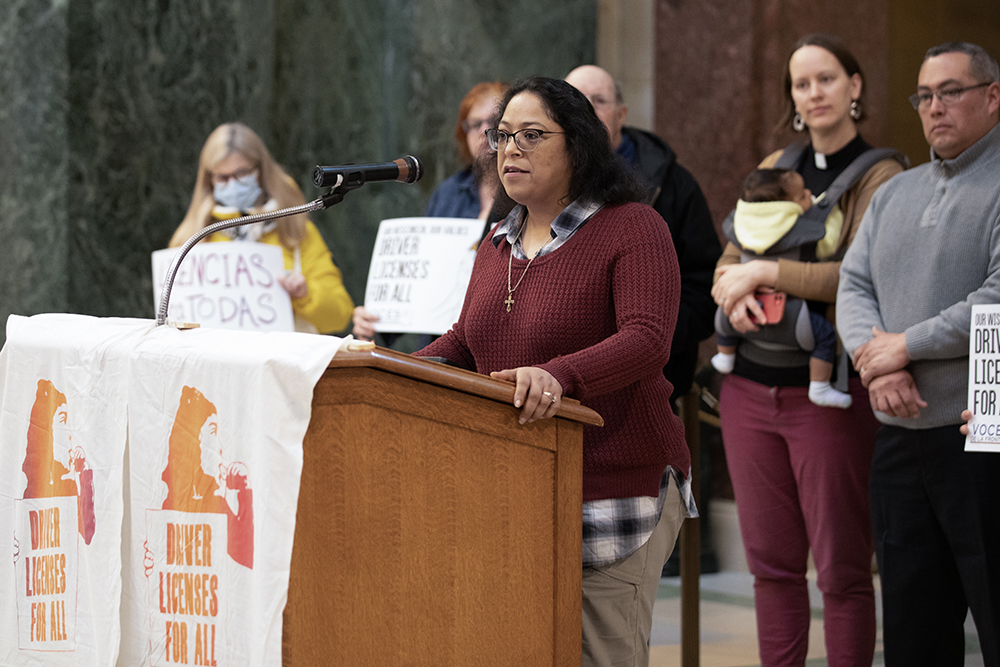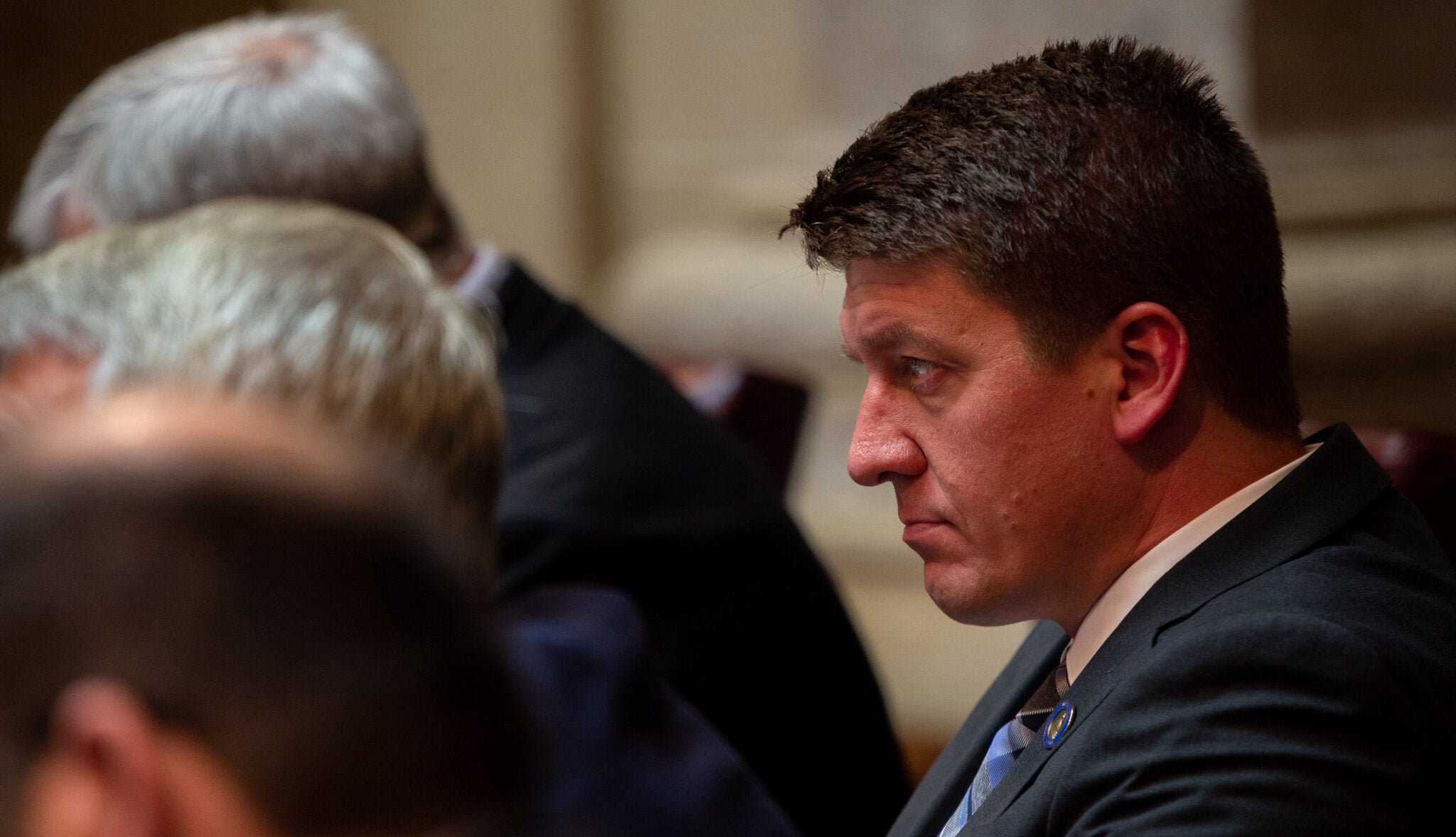Republican state lawmakers have unveiled a new bill responding to the COVID-19 pandemic in Wisconsin, a proposal they intend to fast-track to Gov. Tony Evers’ desk, according to the leader of the state Assembly.
The proposal Monday comes after months of disagreements between Evers and the GOP-controlled Legislature over how state government should respond to the pandemic. Lawmakers last met in April to pass the state’s first COVID-19 response bill.
The new GOP-backed proposal, which mirrors some elements of an Assembly plan released in early December, would give businesses, schools and governmental entities legal immunity if someone contracts COVID-19 on their premises, even if the entity isn’t following local, state or federal requirements to curb the spread of the virus.
News with a little more humanity
WPR’s “Wisconsin Today” newsletter keeps you connected to the state you love without feeling overwhelmed. No paywall. No agenda. No corporate filter.
The bill would also:
- Bar schools from providing virtual instruction, unless its school board votes to approve virtual instruction by a two-thirds vote of its members. Each approval would last only 14 days.
- Require the state unemployment insurance call center to expand its hours until a backlog of unemployment claims is at pre-pandemic levels.
- Extend the suspension of a one-week waiting period for unemployment benefits until March 14.
- Prohibit the state Department of Health Services (DHS), local health officials, and employers from requiring people to get a COVID-19 vaccine.
- Limit local health officers’ ability to restrict capacity of businesses during the pandemic to 14-day periods, unless the local government approves an extension of such an order. Each extension could only last 14 days.
- Bar DHS and local health officers from closing or forbidding gatherings in places of worship.
- Allow a nursing home or assisted living facility resident to designate an essential visitor to visit and provide support for the resident.
- Require health insurers to cover testing for COVID-19 without imposing any copayment or coinsurance.
- Give the state budget committee more power over how federal COVID-19 relief funds are spent.
- Require the governor to submit a plan to reopen the state Capitol building to the public.
Evers has the power to veto the bill.
On Monday afternoon, the governor’s spokesperson, Britt Cudaback, criticized Republicans for not working with Evers on a bipartisan bill.
“It’s disappointing that instead of passing the COVID compromise the governor and Republican leaders worked on together, Republicans now plan to move ahead with their own legislation,” Cudaback said. “Wisconsinites deserve legislators who will put politics aside and work together to do what’s best for the people of our state.”
Evers released his own COVID-19 proposal late last month, saying it was the result of bipartisan meetings with state GOP leaders.
On Monday, Assembly Speaker Robin Vos, R-Rochester, rejected that characterization, saying Evers’ proposal in December marked him “walking away” from across-the-aisle meetings about response to the virus.
“This bill includes many items from our bipartisan discussions — however, our constitution can never be placed on hold, even during times of a public health emergency,” Vos said during Monday afternoon’s Assembly session.
Vos said the new proposal was drafted in consultation with the GOP-controlled state Senate. It is scheduled for a public hearing and vote by the Assembly health committee Tuesday.
“Let’s join together to get this bill passed this week to provide the help Wisconsinites need,” Vos said.
Reopening The Capitol
GOP lawmakers also used the first day of their new session to pass a resolution calling on the Evers administration to reopen the state Capitol building.
Evers’ state Department of Administration (DOA) closed the building March 26 in response to the COVID-19 pandemic. While other Evers orders issued around the same time have long since expired or been struck down in court, the Capitol has, by and large, remained closed.
Practically speaking, it didn’t matter much during most of 2020, as the Legislature only returned to Madison for a single session day and a handful of committee hearings. Now that the new session has started, that’s likely to change.
“Wisconsin law provides that control of the state capitol building is … a shared power of the executive branch and the legislative branch,” read the GOP resolution. “The executive branch, by restricting public access to the state capitol building, may be impermissibly interfering with the ability of the legislative branch to carry out its legislative duties and exercise legislative powers, especially those relating to representation and delivery of constituent services.”
The resolution called on Evers’ DOA to “immediately to provide free and open public access to the state capitol building.”
Democrats tried unsuccessfully to amend the plan to require that people wear face masks when they’re in the Capitol. Several GOP lawmakers attended session in person without masks, as did several members of the public in the legislative galleries.
“Some of you have no respect for my life,” said state Sen. Lena Taylor, D-Milwaukee. “I should not have to risk my life to come do my job.”
Republicans rejected the face mask amendment and the GOP plan passed on voice votes.
A spokesperson for Evers did not immediately respond to a request for comment.
Should the governor object to reopening the Capitol, it could set the stage for another lawsuit between Evers and GOP lawmakers.
A Monday memo from the nonpartisan Legislative Reference Bureau’s Rick Champagne stated that under Wisconsin law, control of the state Capitol building was a shared power of the Legislature and the governor.
“If the legislature determines that the lawful exercise of legislative power requires in-person public access to legislators in legislative spaces, DOA’s action to restrict public access to the state capitol building may impermissibly infringe on the legislature’s core constitutional powers,” Champagne wrote.
Wisconsin Public Radio, © Copyright 2026, Board of Regents of the University of Wisconsin System and Wisconsin Educational Communications Board.

